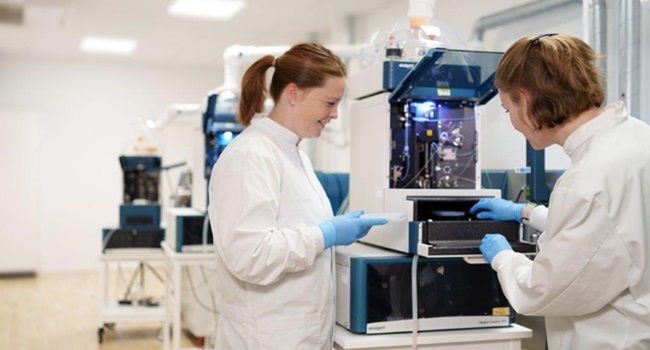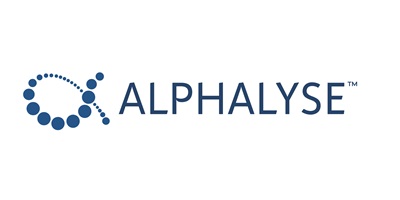The requirements for quality assurance of biologics are increasing. Danish contract laboratory now opens for access to a database that – combined with the company’s measurement tools – can shorten the development time and heighten the quality of novel biological products.
Since 2007, the contract laboratory Alphalyse A/S has developed and refined a new method of impurity analysis in biological pharmaceuticals based on mass spectrometry (MS). The method can be applied to new biopharmaceutical projects within a few weeks, in contrast to the existing technology, which can take one to two years to adapt. The MS technique can also help ensure a cleaner biopharmaceutical end-product.
On December 1st, the US Pharmacopeia expanded its guidelines with a new method chapter describing the best practice of mass spectrometry analysis for quality control of biologics. Alphalyse, a global market leader in MS-based protein analysis, is already ahead of the curve: The company has assembled an extensive database of analytical MS results that enables comparisons across pharmaceuticals. The data can help assess risks and ensure the product meets regulatory requirements.
– We have been collecting data for eight years, and it is now possible to systematically compare pharmaceuticals in our database with high precision. It’s crucial for quality assurance and efficiency that we can help the client with quality control of their products based on such an extensive databank. It’s likely to transform the way the biopharmaceutical industry looks at impurities, says Thomas Kofoed, co-founder and CEO of Alphalyse. He adds:
– The industry has lacked access to a database like ours. We can now advise clients if and how often we have identified specific protein impurities and give them unprecedented insight into their product. This database is a breakthrough in impurity analysis.
Mass spectrometry could become a requirement
US Pharmacopeia guidelines play a central role in ensuring biopharmaceutical quality, and the new recommendations are expected to become a part of the standardized procedures for developing biologics globally.
Lars Skriver, Ph.D. in biochemistry, has as senior science officer at Savara Pharmaceuticals worked on projects with Alphalyse. He anticipates that MS-based analysis of biologics will be a regulatory requirement for pharmaceutical purity control within a few years.
– Protein impurities are a great source of concern, and regulatory authorities are focusing more on drug impurities than ever before. Alphalyse aims to be a thought leader in establishing new quality standards for pharmaceutical impurity control, says Lars Skriver. He adds:
– Many companies can perform protein analysis, but Alphalyse’s database provides an overview of which specific polluting agents you can anticipate in the production process of various biologics, and this is a major benefit. In addition, the traditional (ELISA) method can take more than a year to adapt to a new drug. Alphalyse’s cutting-edge analysis tools and database reduce the analysis development process by several months.
Global head start
With the announcement of the new USP method chapter, Alphalyse hopes to strengthen its collaboration with existing and new clients, especially in the US, where the US Food and Drug Administration (FDA) frequently refers to the US Pharmacopeia.
– Alphalyse has developed one of the methods recommended in the US Pharmacopeia, and we are the most experienced laboratory in the world for MS analysis of biologics impurities. We offer a service that helps pharmaceutical companies optimize the development and production of biologics, ensuring that new products are cleaner, cheaper to produce, have longer shelf life, and cause fewer side effects for patients, says Thomas Kofoed. He adds:

– We hope the industry will seriously consider how powerful MS analysis is for the quality assurance of biologics – and look into the ability to collect data actively for risk evaluation and production standardization It should lead to fewer drugs failing in clinical trials and more products reaching the market. We’ll probably see a growing number of innovative therapies for treating diseases such as multi-resistant bacteria, cancer, and Alzheimer’s – and in the case of a new pandemic, it will be possible to develop new vaccines much faster than ever before.






















